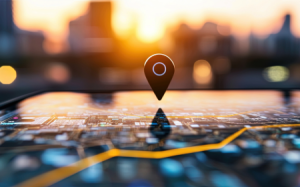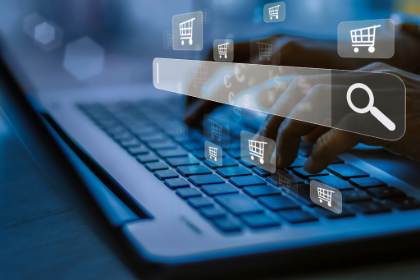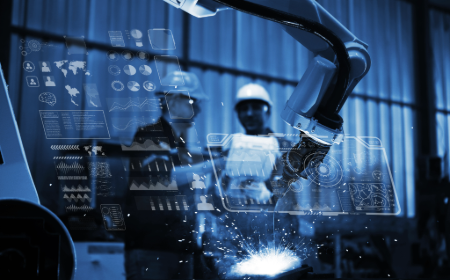What is an AI PC? What can you do with these computers and why are they suddenly popular? – HT Tech
An ‘AI PC‘ – What on earth is it? If you have been on the internet in the last few months, this term might have popped up on several occasions. Artificial intelligence (AI) itself has become the buzzword of the last few years and has taken the world by storm. While the term was first coined in 1956 and the technology has been in development for decades, it wasn’t until the release of ChatGPT, OpenAI’s natural language chatbot in 2022 powered by Large Language Models (LLMs), which kickstarted it all, ushering us into a new era and perhaps potentially bringing about the fifth major revolution in human history.
Now, AI is being adopted by the world’s biggest tech companies including Microsoft, Google, Adobe and Samsung, and is being incorporated not only into their suite of software services but also hardware. There’s AI on smartphones too, with Google and Samsung leading the way. Oh, and if you have been thinking that AI is just software-based, then you might want to have a peek at the latest technological trends again.
This AI resurgence has led to the development of unique AI-powered devices such as the futuristic Humane Ai Pin and the Pokedex-esque Rabbit R1, both of which aim to steadfastly anchor this technology into our lives, much like the smartphone revolution of the 2000s. While not quite at the same level yet (as evident by MKBHD’s controversial yet understandable take), these devices offer a glimpse into a future that may very well have AI at the centre.
This AI revolution has also led to a high demand for AI chips – processors that are specifically designed for AI-related applications. Companies such as Intel and Nvidia have seen high demand for these AI chips which have led to humongous sales and chunky profits. Although these chips have varied applications, the most common of them is in AI PCs. But what are these devices?
What are AI PCs?
These have become super popular since Intel released its 14th Gen Meteor Lake processors last year and introduced the world to the ‘AI PCs’, a potential paradigm shift in the PC world. The term ‘AI PCs’ in itself is a dead giveaway with two syllables, AI which means artificial intelligence and PCs meaning personal computers. So, it must be a PC that has AI embedded, right? While that is true, it is just scratching the surface. Now according to Intel which coined the term, AI PCs are a new generation of personal computers that fulfill 2 conditions:
1. Must come with Microsoft Copilot and have a dedicated Copilot key
2. Must be powered by a CPU with a GPU and an NPU (in short, the new Intel Ultra chips)
How are AI PCs different from existing computers?
While you can use AI on your existing PCs too, most of those capabilities are cloud-based. This means that although you can run AI-based applications on your devices without them taking up too much space, there are a lot of limitations. For starters, the application’s performance varies depending on your internet connection and latency. Oh, and there are also data privacy issues, especially for larger corporations since everything goes through a cloud server.
On the other hand, AI PCs offer all the capabilities on-device. While these devices may not be able to handle as large volumes of data, the processing is rapid and happens securely on the device itself. This removes obstacles such as latency. To make sure that the CPU is not overloaded with AI tasks, these devices have a Neural Processing Unit (NPU). Leveraging AI and machine learning, NPUs optimize algorithms and their architectures are tailored to handle neural network computations. This speeds up the processing of AI-related tasks, lessening the load on the CPU and GPU and increasing not only the efficiency but also the throughput.
What are the uses of AI PCs?
That’s the million-dollar question. While AI PCs with NPU may sound high-tech, are there use cases for it in daily life? Well, it depends. Although the technology is still in its infancy, there have already been several notable uses related to AI research and development and Internet of Things (IoT) applications.
At present, AI PCs are being used to run AI-supported applications that crunch numbers and sift through data. Moreover, they are also utilized to run generative AI programs like Stable Diffusion, Anthropic’s Claude and OpenAI’s Sora. On the other hand, these devices come with Microsoft Copilot, the company’s AI chatbot, built-in. This means you can have conversations with an AI chatbot and ask it to carry out tasks for you on your PC locally such as summarizing web pages, without the need to connect to a cloud. While it still requires an internet connection (and a Copilot Pro subscription for enhanced functionality), it certainly is miles better than Cortana, the dreaded Microsoft voice assistant.
So, are AI PCs the future? We do not know. But the rapid developments in the field of AI certainly paint an interesting picture of the future with a potential likelihood of the Star Trek-meets-Back to the Future reality, without the apocalyptic ideas attached to it.
One more thing! We are now on WhatsApp Channels! Follow us there so you never miss any updates from the world of technology. To follow the HT Tech channel on WhatsApp, clickhere to join now!













